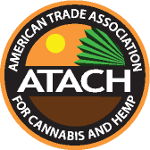1. Introductory Summary
Florida currently allows the sale of synthetic THC products, including Delta-8 THC, with minimal regulatory oversight. In 2024, lawmakers attempted to introduce stricter controls through SB 1698, which included potency limits, specific licensing, and enhanced public safety measures. However, Governor DeSantis vetoed this bill, leaving synthetic THC products largely unregulated within general retail. Lawmakers have expressed intent to revisit these regulations in 2025 to address potential health and safety risks.
2. Current Regulation of Synthetic THC Products
Florida currently permits synthetic THC products, such as Delta-8 and Delta-10 THC, to be sold widely without stringent regulatory restrictions. Although SB 1698 aimed to implement stronger controls, including limiting sales to licensed dispensaries, the veto left these products accessible in various retail outlets, including gas stations and convenience stores.
3. THC Potency Limits
Currently, Florida does not enforce potency limits on synthetic THC products.
4. Public Health Measures
Florida’s public health protections for synthetic THC products are limited to basic age restrictions (21+) and minimal packaging requirements. The now-vetoed SB 1698 would have added more stringent packaging standards, including enhanced child-resistant features, to reduce risks associated with accidental ingestion. Legislators may reconsider these measures in upcoming sessions.
5. Taxation and Fees
Synthetic THC products in Florida are currently taxed as standard retail goods, with no additional excise or regulatory fees.
- Licensing Requirements
Florida does not require specific licensing for retailers selling synthetic THC products, allowing them to be sold in general retail without oversight.
7. Testing Requirements
Current Florida law does not mandate testing for synthetic THC products regarding potency, contaminants, or safety.
8. Packaging and Labeling Standards
Florida enforces minimal packaging and labeling standards, such as basic child-resistant packaging.
9. Advertising and Marketing Restrictions
Florida’s current advertising restrictions on synthetic THC products are general and do not include specific limitations to prevent targeting minors.
10. Local Authority and Zoning Restrictions
Currently, Florida grants limited zoning authority to local jurisdictions regarding synthetic THC sales.
11. Product Recalls and Consumer Safety Provisions
Florida lacks a structured recall protocol for synthetic THC products.
12. Legal Challenges Related to Synthetic THC Regulation
Florida’s permissive stance on synthetic THC has faced limited legal opposition due to the lack of restrictive regulations. Should future legislation introduce stringent controls or require licensed dispensaries for sales, it may face industry challenges.
13. Impact on Medical Marijuana Program
Florida’s current policies on synthetic THC products do not intersect with its medical marijuana program.
